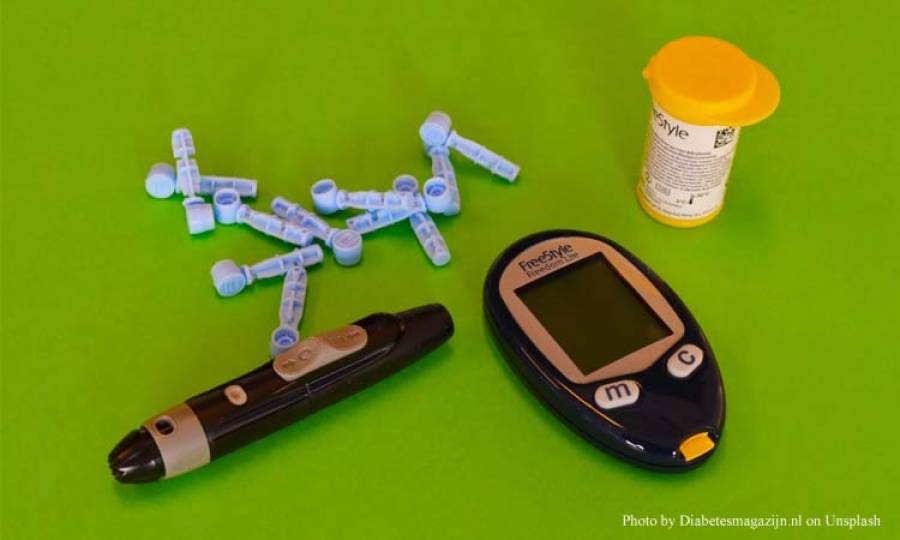Pakistan Ranks 3rd Highest In Diabetes Prevalence Globally

KARACHI: The International Diabetes Federation (IDF) has ranked Pakistan as the third highest in the diabetes prevalence worldwide, following China and India. According to the IDF, around 33 million people in the country are living with diabetes.
Overall, more than 537 million people have diabetes across the globe. During the Covid-19 lockdown, we have seen an increase in the prevalence of type-II diabetes worldwide and Pakistan as the pandemic has restricted physical activities, and obesity was seen on the rise during the pandemic duration.
These views were expressed by Professor Dr Shamim Qureshi of the Department of Biochemistry, University of Karachi while addressing a seminar entitled “Access to Diabetes Care”.
In collaboration with the University of Karachi Alumni Association (UKAA) Baltimore, Washington, USA, the department of biochemistry organised a poster competition and seminar in connection with World Diabetes Day.
She informed the audience that this is alarming that the country has been witnessing so many people with diabetes and still not taking it seriously.
Other seminar speakers were Dr Muhammad Zafar Iqbal Abbasi from Baqai Institute of Diabetology and Endocrinology; Mariam Abdeali, a Consultant Dietitian and Dr Tooba Lateef, Assistant Professor at the Department of Biochemistry.
Dr Abbasi highlighted the significance of the standardisation of health care establishments and their services in his talk. He said that the Second National Diabetic survey revealed the prevalence of diabetes is 26.19 per cent among people over 20 years, clarifying that that means that every fourth person has diabetes in the country.
The endocrinologist stated that health facilities are insufficient, and diabetes supplies are not regular. He emphasised the structured training of health care providers to cope with the massive burden of diabetes at one end and ensure uninterrupted affordable diabetes supply at the other. He reiterated that an all-out approach with exemplary efforts is required on a priority basis.
Dr Abbasi believed policymakers and authorities must recognise that more prevention and reasonable control of diabetes will reduce the workload of other specialities–oriented facilities like cardiac hospitals, kidney hospitals, and neurological centres.
Ms Mariam gave a good account of the implications of a balanced diet on the health of diabetes patients. She said that a healthy diet ensures good health. The success of dietary management in diabetes care depends upon flexibility, portion control, and consistency.
She shared that better lifestyle choice on an all-time basis leads to desired results of medical nutrition therapy. She advised that bodyweight must be controlled and maintained to keep the body mass index (BMI) below 25 kg/m2.
On this occasion, Dr Tooba Lateef conducted self-health assessment activity through a mobile app called NutriApp (T gamma developers) among participants. Participants learned about their ideal body weight, BMI, waist to hip ratio, recommended calories, and fluid intake. She mentioned that these are the critical factors in planning a healthy diet to be fit.
Dr Shershah Syed, a renowned gynaecologist and surgeon, and Dr Sadaf Ahmed, Chief Executive Officer of Advanced Education Institute and Research Center, were the chief guests of the event. Both of them emphasised the importance of education for youth, especially females. They stated that education is the key for getting awareness not only for any disease, including diabetes but also it helps to handle any problem which youth face in their social life.
The final year of students of the biochemistry department (Morning and Evening Program) actively participated in the poster competition and made colourful posters regarding awareness of diabetes and its complications. Dr Hina Mudassir (Chairperson, Department of Biochemistry, Federal Urdu University of Arts, Science and Technology), Dr Musarrat Jahan (Assistant Professor, Human Nutrition and Dietetics, Ziauddin Medical University) and Dr Arisha Salman (Assistant Professor, Department of Biochemistry, Dow International Medical College) were among the judges for the competition.
Ayesha Shahbaz won the first prize, while a special prize was received by Maryum Laiquat, Rida Qamar, Hafiza Fatima Zehra, Ayesha Mustaqim, and Bakhtawar.
During the event diabetes camp to assess free blood sugar and bone mass density BMD) was also arranged by Dr Essa Diagnostic Laboratory in the biochemistry department.
Trending
Popular
Sindh pledges vigorous action to prevent poliovirus transmission
-
PMA stresses health equity on World ...
04:08 PM, 9 Apr, 2024 -
Dow University’s new rabies vaccine ...
12:18 PM, 28 Mar, 2024 -
IRD role lauded in advancing ...
02:53 PM, 12 Mar, 2024 -
Over one billion people worldwide ...
09:48 AM, 5 Mar, 2024




